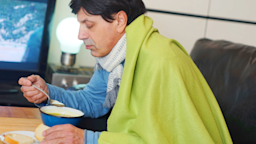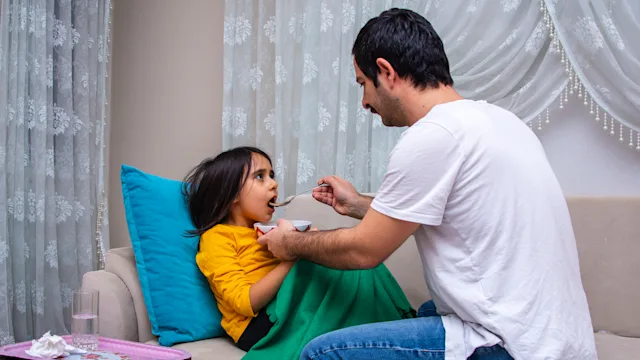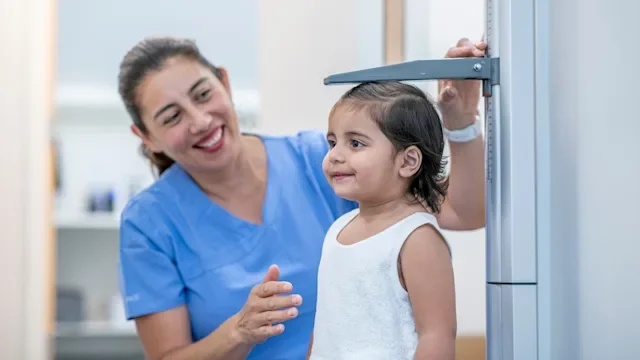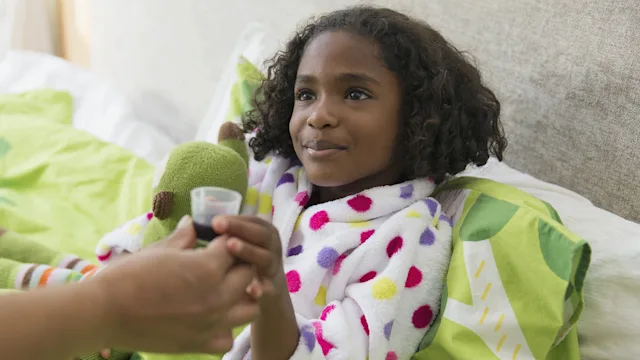Key takeaways:
Kids bring home illnesses during cold and flu season. And that can be exhausting for everyone.
To avoid getting sick, some parents boost their immunity with vitamins and herbs and try to get plenty of rest.
Three moms say their go-to strategies for keeping the germs away include disinfecting the house, maintaining proper nutrition, and “careful cuddling.”
When your kids bring home illnesses during cold and flu season, it can be exhausting for the whole family. Their colds and flus can take a toll on your immune system, too.
Sometimes, schools and daycares can seem like germ factories that keep sending kids home with more sickness to spread. But disinfecting the house, keeping your hands clean, and other strategies may be able to keep everyone in your family from passing those germs around.
Here’s how three Maryland moms say they manage to avoid getting the flu and other illnesses from their kids during the winter months.
Search and compare options
Use herbal remedies and fresh air
Anne Lambertson has three children who range in age from 2 to 8 years old. Anne says that no one in their household gets the flu shot, but she does prepare for cold and flu season other ways.

During warmer months, Anne likes to open the windows to allow for fresh air flow. During colder months, she uses an air purifier. But, even then, she encourages her children to get plenty of time outdoors. Anne says her family also relies on vitamins, herbs, and plenty of rest for an immune system boost.
When Anne’s children do fall ill, it’s rare that she gets sick from them.
“I don’t usually get sick when my kids are sick — especially when I’m loading up on vitamins and elderberry,” she says.
Anne tries to get more sleep when someone in her family is sick. And she uses homemade remedies like elderberry syrup and fire cider. They're part of her household’s approach to preventing or shortening illness.
While her kids much prefer the sweeter elderberry syrup, Anne is a big fan of fire cider. She makes it with ingredients like garlic, onion, hot pepper, turmeric root, horseradish root, ginger root, orange, and lemon. The ingredients are all fermented in apple cider vinegar, which is then sweetened with raw honey.
Read more like this
Explore these related articles, suggested for readers like you.
“I learned how to make it after my mother-in-law gifted me a book about it,” she says of the medicinal drink.
Wash your hands and face
For Jackie Hampton, a mother of two girls — ages 3 and 5 — in Baltimore, staying healthy is a top priority during cold and flu season.
“As a single mom with a full-time job, I can’t afford to get sick,” Jackie says. “We were hit with a back-to-school bug that took down almost all of us throughout the month of October.”
Once they were healthy again, Jackie adds, she and her kids got their annual flu shots.

Jackie says her kids tend to get sick at predictable times: at the start of a school year, after winter break, and once in the summer. That’s usually when they are around other kids who are sick.
To help herself stay healthy, Jackie responds quickly at the first sign of illness. Whenever her kids are sick, she tries to sleep as much as she can and drinks lots of water. She also cleans and disinfects her countertops and bathrooms continuously while they’re ill.
When her children are sick, they “ride it out” with the help of over-the-counter medications like saline nasal sprays, Jackie says. And she tries to comfort them as much as she can.
“I try to stay clear of sneezes and wash my hands and face like crazy when the girls are sick,” she says, explaining that this approach works for the most part.
“In the past three years, I’ve only had one major takedown with a cold while still being very present and cuddly with my girls,” she adds.
Clean more often
Erin Alton lives in Annapolis with her three children who are 13, 16, and 20. She has a regular cleaning schedule for her home. But, during cold and flu season or when illness hits the home, she cleans more often.
“I am more diligent with wiping things down, especially in cold and flu season,” she says. “I make Lysol-wiping of railings and doorknobs a once-a-week project — not a once-a-month or deep-cleaning project.”
And ever since the first year of the COVID-19 pandemic, Erin’s family has been getting regular flu shots.

Even with the flu shots, two of Erin’s children have contracted the flu 4 years in a row. Though, Erin says she rarely gets sick and has never had the flu. She credits her good health to having a strong immune system. But she also believes that her approach to regular cleanings and “careful cuddling” help.
When her kids were sick, especially when they were younger, Erin was careful. She’d have them rest their heads in her lap, not near her face, when they were snuggling.
“I still wanted to be comforting. But I would avoid kisses, and no face-to-face hugs,” she says, adding that she’d slip away to wash her hands when the cuddling was over.
As her children have gotten older, Erin says, it’s been easier to separate herself from them when they’re sick. She has them isolate in their rooms, bringing them what they need to feel comfortable. That includes healthy food, because Erin encourages her kids to eat well, especially when they’re sick.
The biggest advice Erin has for parents when their kids bring home the flu or a cold is: “Don’t stress,” because illness can’t be completely avoided.
What does the doctor say?

Patricia Pinto-Garcia, MD, MPH
Medical Editor
It’s no secret that colds, flu, and COVID can rip through households at lightning speed. The viruses that cause these illnesses spread from person to person through respiratory droplets. Anytime someone with one of these viruses talks, sings, laughs, coughs, or sneezes, they release droplets containing that virus into the air. And other people can get sick just by breathing in those droplets.
If you spend time in close proximity to someone who’s sick with an airborne virus, there’s a good chance you’ll get sick, too. And as any parent or caregiver knows, caring for a child is a full-contact sport. Physical proximity is simply unavoidable, especially when your kid isn’t feeling well.
But there are still ways to lower the risk of picking up a virus from your child, including:
Vaccines: Flu and COVID vaccines lower your risk of getting sick with these common viruses. And if you do get sick, you’re less likely to get seriously ill after being vaccinated.
Handwashing: If someone in your household is sick, every family member should wash their hands (or use hand sanitizer) often. It’s also a good idea to avoid touching the face, eyes, and mouth as much as possible.
Keeping some distance: If possible, try to keep some distance from your sick child and other family members. That’s easier said than done, as most people realized during the COVID pandemic. But there are ways to maintain distance that don’t involve isolation. For example, don’t share utensils, cups, and other items that go in or near the mouth. Move your sick child’s toothbrush away from everyone else’s. Encourage your children to play in ways that don’t involve being as physically close. Wearing masks also creates a physical barrier between household members.
Cleaning and disinfecting: Viruses can live on surfaces. Try to regularly clean and disinfect frequently touched surfaces. Have your sick family members use a separate bathroom, if possible.
Just keep in mind that nothing is foolproof. You might follow all these tips (and more) and still get sick. But remember, with each illness, your family members’ immune systems are learning to fight off viruses. So future cold and flu seasons may bring fewer illnesses to your home.

Why trust our experts?





















